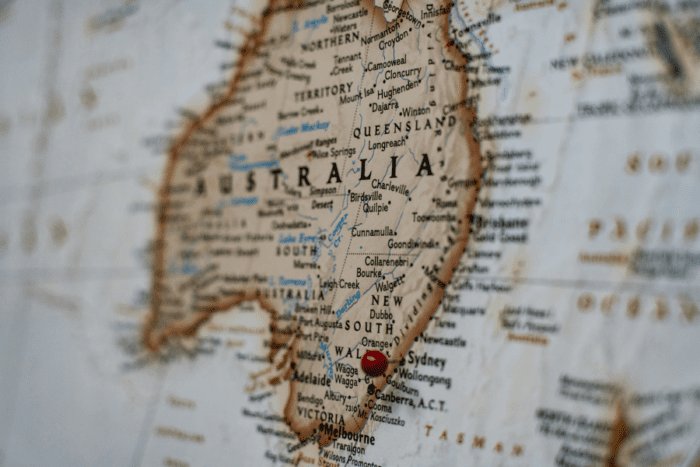How to Open an Australian Bank Account as a Non-Resident
June 27, 2024
If you’re thinking about opening a foreign bank account, Australia might not be the first destination that springs to mind.
After all, it’s not a classic offshore hub like the Cayman Islands or Vanuatu, nor a bustling financial hub like Singapore or Hong Kong.
But, beneath the surface, Australia’s banking system harbours unique advantages that make it a compelling choice for many travellers and investors.
Imagine a place where your money is not only safe but also underpinned by one of the most stable economies in the world – a place where business is supported and entrepreneurs encouraged.
This is the reality of Australia, where banking is synonymous with reliability and convenience. Whether you’re a frequent visitor or conduct regular business ‘Down Under’, an Australian bank account can streamline your financial dealings and offer peace of mind.
Still, even with a great business outlook, opening an account with an Australian bank can be complicated and that’s where Nomad Capitalist can help. Our team has years of expertise and experience helping people navigate the intricacies and complexities of embarking on a new, foreign adventure. Let us help you unlock the benefits of Australian banking and craft your offshore plan with ease. Reach out to us and start planning the next step of your journey.

Why Open an Australian Bank Account?
Although Australian banks aren’t the best banks in the world, they’re nowhere near the worst. In fact, a few of the largest banks in the country are among the world’s safest.
They don’t offer exciting interest rates or other unique banking benefits. However, an Australian bank account is stable, making it an attractive option if you tend to bank in less stable jurisdictions or simply want to diversify your assets.
Or, if you like to bank in the Land Down Under, an Australian bank account is a valuable resource.
If you have Australian employees or vendors, for instance, it might be easier to transfer money to them from an Australian bank account than from one in another country. Alternatively, you may plan to invest in Australia, and having an Australian bank account may make that process a bit easier.
Overall, an Australian bank account is like a dependable minivan. It’s not fun or glamorous in any sense, but it serves its purpose well.
How to Open an Australian Bank Account
If you want to open a bank account in Australia, we have some good news – it’s rather easy to do so even as a non-resident.
In fact, thanks to Australian banking laws, you can even open an account if you don’t have an Australian address (provided you haven’t been in the country for more than six weeks).
The process of opening an Australian bank account is also relatively simple. In fact, you only need to follow three simple steps.
1. Choose an Australian Bank
Before you arrive in Australia, you should take the time to research Australian banks to find out which meet your needs.
As with most overseas banks, larger banks tend to be more open to non-residents than smaller ones due to the inherent risk of accepting foreigners.
Much like banks in the US, banks in Australia aren’t always very globally minded. A tiny bank with a few branches around Melbourne likely won’t know what to do when it receives a non-resident application. However, larger banks like the Commonwealth Bank of Australia have much more experience dealing with non-residents.
With most Australian banks catering to non-residents, you can usually start the application process online. This process is normally quite simple, but be sure to select the correct visa and residency status (tourist/eTA) on your application.
2. Travel to Australia
If your application is accepted, you will receive an invitation from the bank to come finalise your account and collect your Australian debit card.
This part of the process will require some planning. Unless you’re based in Southeast Asia, simply getting to Australia is an ordeal in itself. Flights to Australia from Europe or the US are long and expensive, so you should book well in advance.
Also, ensure that you allocate enough time to recover from the flight and open your account. Not to mention, if you’re travelling from far away, you may as well give yourself time to actually enjoy the country.
Finally, as you plan your trip, double-check that you’re travelling to the correct city. During the application process, most banks will have you select a particular branch to visit, so when you plan your trip, you don’t want to hop off a 24-hour flight to Sydney only to discover that the branch you selected is across the country in Perth.
3. Open Your Australian Bank Account
After you arrive in Australia, you’ll need to visit the bank you applied to in person to finalise your new bank account.
Once you get to the bank, the rest of the process is rather easy. All you need is your passport – no proof of address or any other documents. They’ll likely ask you why you want to open the account, but simply telling them that you’re a frequent visitor or considering moving there will satisfy most banks.
Once you prove your identity and answer a few cursory questions, the bank will officially open your account, hand you your debit card and grant you online banking access.

Tips for Opening a Bank Account in Australia
While the process for opening an Australian bank account is straightforward, you should keep a few things in mind.
Don’t Use an Australian Address
Unless you legitimately plan to move to Australia, you shouldn’t use an Australian address to open your account—otherwise, you may inadvertently become an Australian tax resident.
The Australian Taxation Office (ATO) is on par with the IRS in terms of aggression – meaning that it will do everything in its power to rope you into the Australian tax net.
Therefore, if you open an Australian bank account with an Australian address, the ATO may decide that you’re an Australian tax resident and charge you accordingly.
Get a Local SIM Card
Like most banks around the world, Australian banks often require their users to authenticate their information through their phone numbers, so you’ll likely need to provide an Australian number when you open your account.
Some banks may allow you to provide a foreign phone number, but they usually prefer to reach you on a local line. Since this phone number is essential to accessing your account, it’s worthwhile to take the extra time to grab a SIM card before you head to the bank.
Make Sure it’s Worth Your Time
One of the things that we frequently warn against is collecting shiny things for the sake of having them.
Although the process of opening an Australian bank account isn’t too difficult, travelling there costs time and money. Therefore, you should examine your intentions before applying to be a customer at an Australian bank.
That intention can be as simple as, ‘I’ve always wanted to visit Australia, and opening a bank account there seems like a good way to diversify my assets’.
However, you shouldn’t go through the trouble of taking a 20+ hour flight if you have no desire to visit and no specific reason to open an Australian bank account.

How to Open an Australian Bank Account as a Non-Resident: FAQs
Yes. While not every bank in Australia accepts bank account applications from non-residents, there are plenty that are more than happy to accommodate you.
Yes. Most banks allow you to apply for a bank account online in Australia, but you can still expect to have to visit a bank branch in person to prove your identity.
It can vary from bank to bank, but in most cases, you will need to show your ID. This can be a passport, visa or driver’s license.
There are a few banks to choose from, but Commonwealth Bank is a good choice. They have useful information on their website and offer online services.
Generally, yes, you can. Although it can depend on the bank, Australia has fully modernised banking systems, many of which allow for overseas transfers.

Bank Where You’re Treated Best
Although opening a foreign bank account in Australia isn’t the right choice for everyone, it can be a great choice if you do business in the country or if you’re seeking a stable banking jurisdiction.
Plus, the process is quite easy – once you complete your online application, you merely need to show up at the bank, prove your identity and collect your new debit card.
As always, however, Australian banking isn’t the right choice for everyone – particularly given the travel requirement. But Australia isn’t the only option out there. At Nomad Capitalist, we help our clients go where they’re treated best based on their goals and needs.
So, if banking in Australia doesn’t sound ideal, we’ll help you find the perfect place to establish your backup or primary bank system. Become a client, and let us handle all the heavy lifting for you.


Does Puerto Rico Pay Taxes to the US?
It’s a common question and one that often fuels confusion, debate, and a fair share of misinformation – Do residents of Puerto Rico actually pay US federal taxes? When most people think of US tax obligations, they naturally assume they apply uniformly across all US citizens. But when it comes to Puerto Rico, things are […]
Read more

Zug Canton Taxes: The Ultimate Destination for Wealth Management in Switzerland
Switzerland’s global reputation is built not just on stunning views of Alpine peaks and serene lakes but also on a foundation of exceptional quality of life, world-class infrastructure and investor-friendly tax policies. The results speak for themselves: efficient public transport seamlessly links cities and villages; the standard of living regularly ranks among the highest in […]
Read more

How Smart Investors Use Venture Capital to Build Wealth
Big companies like Google, Amazon, Facebook and Apple all started out as bold ideas backed by venture capital. Decades later, the same firms are household names, as familiar to most people as electricity, the internet, or the telephone. But hindsight is a fickle friend. The truth is, it wasn’t always so obvious they’d succeed. These […]
Read more




